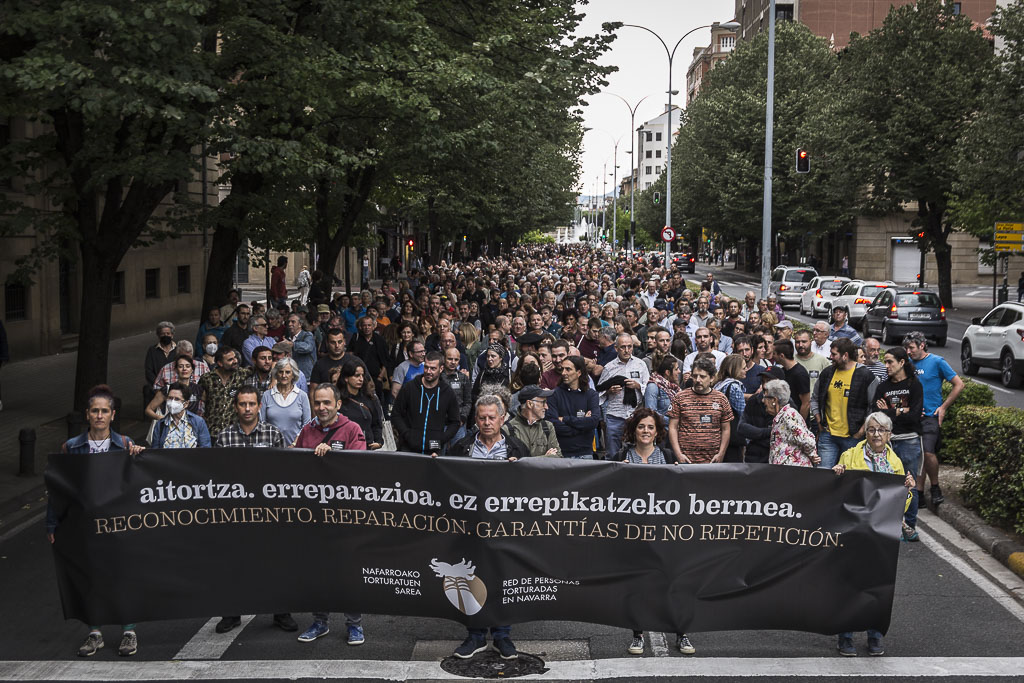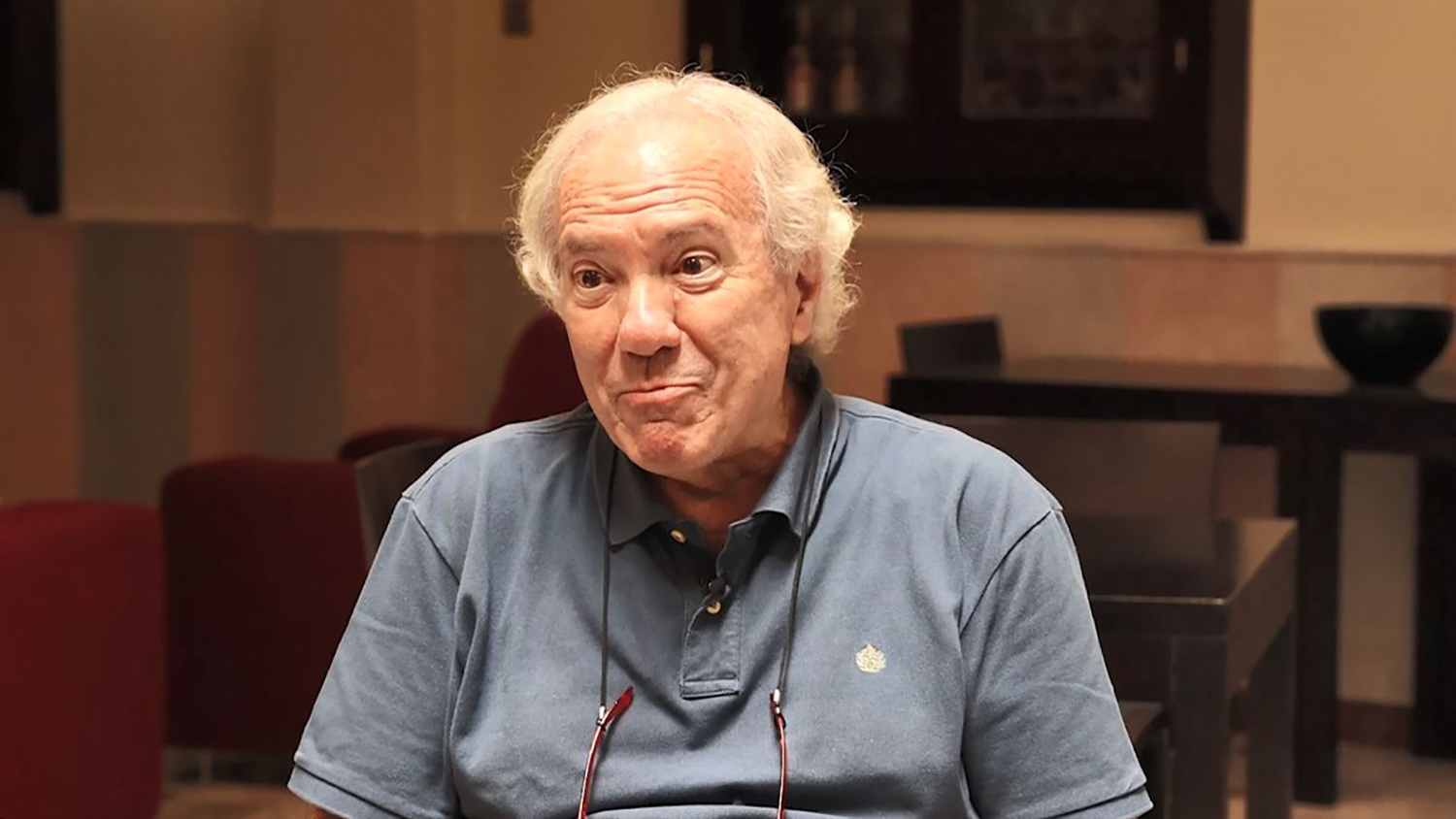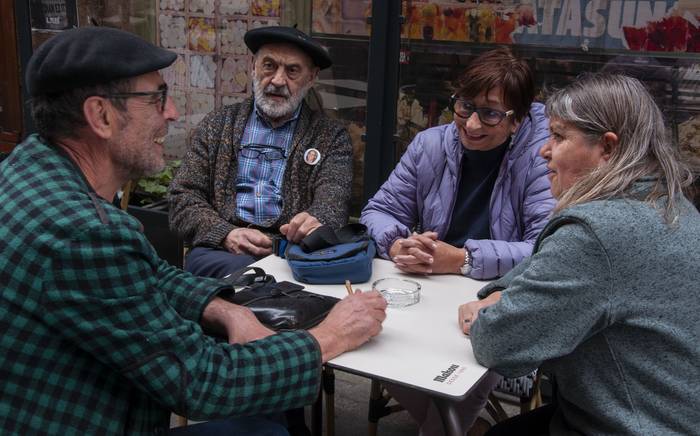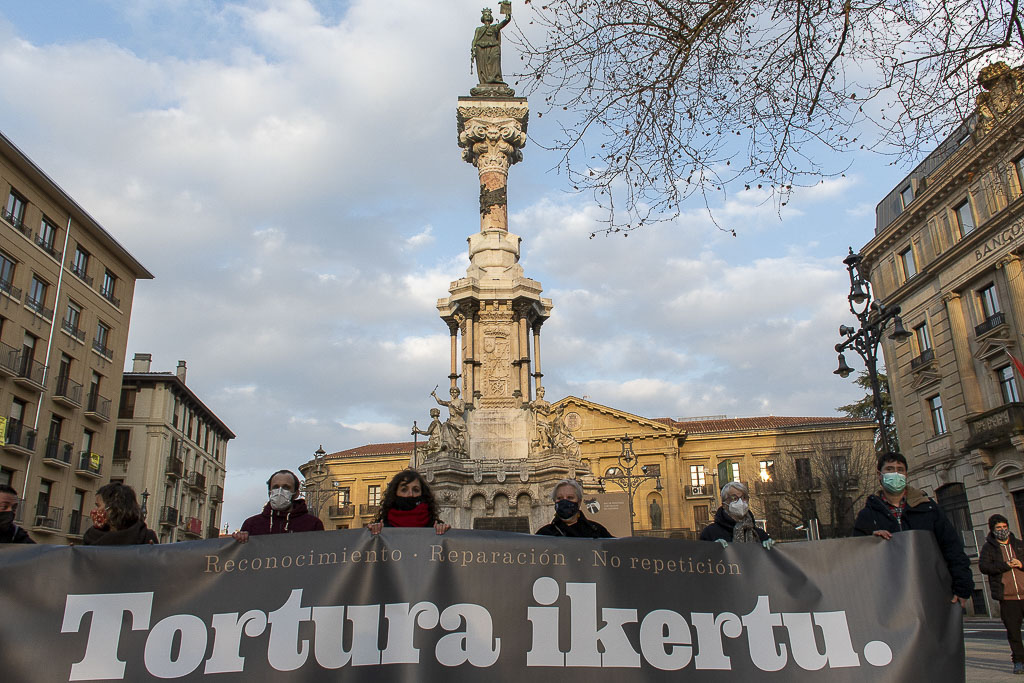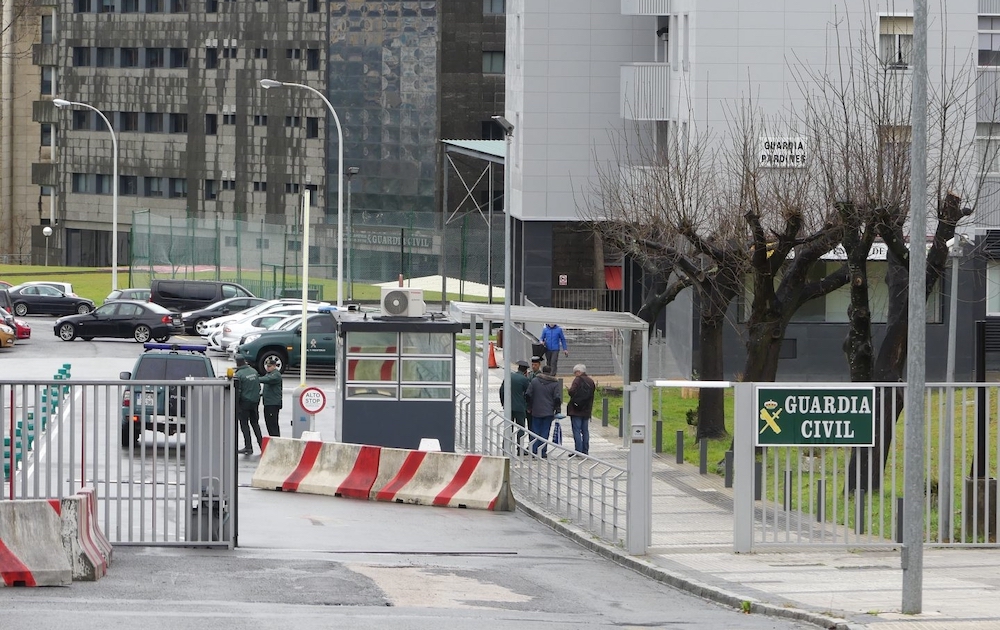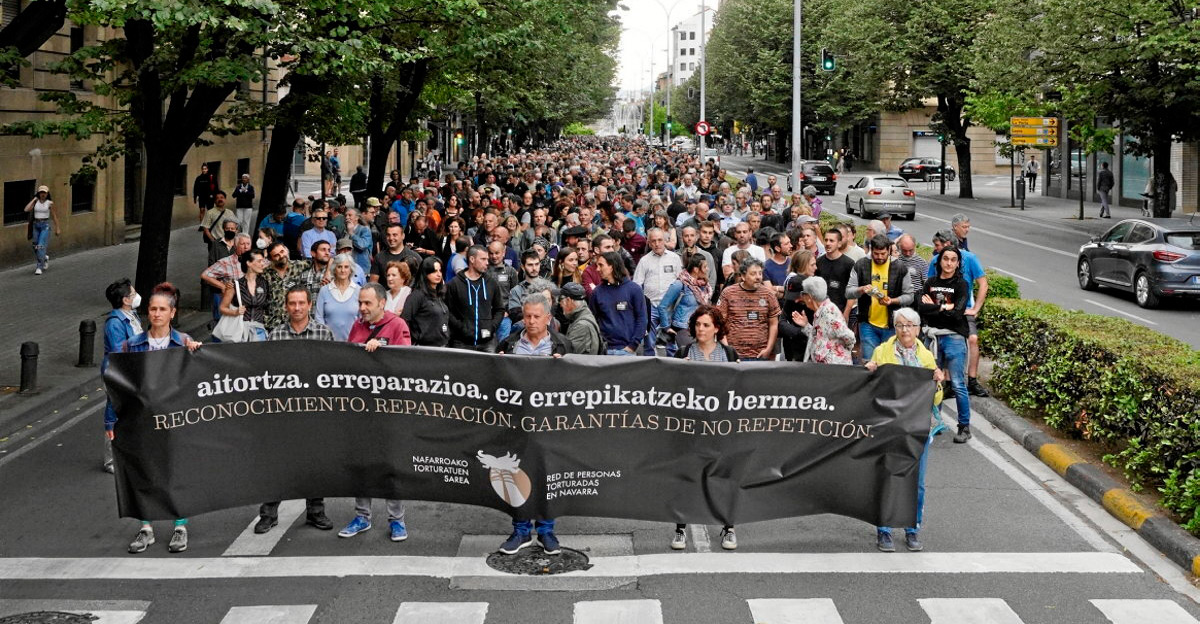
“In the newsletter today at noon, you will see the mayor of your capital, offering the main plaza of the city to the military body that tortured us. In today’s information at noon, you will see the structure that murdered our friends and relatives unravel through our streets. And we, one more day, will have to devour as we can the pain and fear that they caused us. And the blame. And shame. And humiliation."
These are the words of Amaia Urizar, tortured by the Civil Guard in the act of denouncing the military celebration organized by the Civil Guard on 12 October in the center of Vitoria-Gasteiz. Those pains, fears and blame are not Urizar's personal feelings, nor are they a thing of the past.
Last week I interviewed a Gasteiztarra who was tortured by the Civil Guard to learn about his feelings about what the military institute was going to do today. He marked me with anger, with pain, with helplessness. "What they are going to do on October 12 in Vitoria-Gasteiz is an apology for terrorism. I have no doubt that ETA has created terror on a part of society, but those who have created terror on a large part have been the Civil Guard, the National Police, the Ertzaintza, judges or prison officials.” Two days later, all ready, we decided not to publish the interview. “That’s what I feel and I have a right to say, but I don’t feel able to sustain it,” he explained. She was afraid to reappear in public, she was afraid of the Civil Guard. He's been sick all week.
“That’s what I feel and I have a right to say, but I don’t feel able to sustain it,” he explained. He was afraid to reappear in public, fear of the Civil Guard.
Three years ago, I asked for an interview with another person tortured on the occasion of the 20th anniversary of his arrest. He hesitated for a couple of months, suffering unreservedly, until, despite repeated me to forget my conversation, he refused. Once again the fear of the Civil Guard has been caught up in the dock. Fear of appearing as tortured and expressing associated feelings.
Her fear was not only for what the Civil Guard has done in the past, but for what she could do today, in 2024, thirteen years after ETA’s disappearance.
To fear, an even more unfair additional suffering must be added: the burden of giving the testimony both felt, once again, for the umpteenth time, 20 years later, and the lack of testimony brought guilt to them. They would certainly not feel the same and weighty if the truth of torture were officially recognized. But all memory remains a battlefield.
On Saturday, in Vitoria-Gasteiz, steps were taken towards recognition and guarantees of non-repetition. Retreat in Plaza Nueva. A step forward in Artium. During the conflict, it will always be unfair to ask tortured people and victims of state violence in general. For example, asking for an interview can be a source of pain. And yet, they continue to entangle, denounce, testify, individually and collectively. We will value that value and that painful effort in its entirety, not normalize it, because the goal, as in other areas, is to be free, not courageous.
Oraingoz Nafarroan, 53 izango dira estatuaren biktima aitortuak eta horietatik 27 torturaren biktimak. Floren Beraza, Txaro Buñuel, Cecilio Ruiz, Patricia Perales eta Izaskun Juarez dira aitortutako torturatu berriak.
Felipe Gonzálezen garaian Espainiako Barne ministroa zen José Barrionuevoren aurkako kereila aurkeztuko dute, Ipar Euskal Herriko errefuxiatuen aurka abiatu zuen estrategiagatik. ZEN Zona Especial Norte Planaren barruan egindako ekintzen erantzule nagusietako bat... [+]
MARTA PIKAZA GARAIGORTA (Laudio, 1968) Euskal Herriko Torturatuen Sareko kideak eta eskualdeko beste torturatu batzuek ekin diote Aiaraldean ekimena antolatzeari. Egingo dituzten urratsak eta helburuak azaldu dituzte.
Euskal Herriko Bilgune Feministak deituta elkarretaratzea egin dute Hernanin Iratxe Sorzabali elkartasuna adierazi eta "babes osoa" emateko. Inkomunikatuta egon zen uneak berriz ere epailearen aurrean kontatu behar izatea, "bizi izandakoak utzitako ondorioen... [+]
For almost a century, there has been no generation in the Basque Country that has not known torture. There are 5,379 people officially since 1960, but there are many more, because appearing publicly as tortured still hurts. And probably because nothing has changed at the base... [+]
Otsailaren 13a Torturaren Kontrako eguna izanki, Euskal Herriko Torturaren Sareak gutun publiko bat igorri du. Poliziek torturatu euskal jendeen lekukotasunak bildu, eta aitortza egiteko xedea du sare berri horrek Euskal Herri osoan. Torturatuak izan diren 5.000 pertsonei... [+]
Jar gaitezen 2025erako proposamen politiko gisa, Espainiako Auzitegi Kolonialaren (AN) epai guztiak berrikusten hasteko eta makila bakoitzak bere belari eusteko.
Unionismoarekin lerrokatutako alderdi, sindikatu eta gizarte-erakunde gehienek, eta ez bakarrik horrela... [+]
This year marks the 51st anniversary of the United Nations proclamation of International Human Rights Day on 10 December. This date has become important in Euskal Herria and the Human Rights Observatory of Euskal Herria wants to offer some elements of reflection.
Progress on... [+]
In 2006, Baltasar Garzón, then star judge, suffered a kind of revelation and drafted a practice that guaranteed the rights of those detained for terrorism. The same judge saw hundreds of incommunicado detainees pass through his room, many with obvious signs of ill-treatment,... [+]











